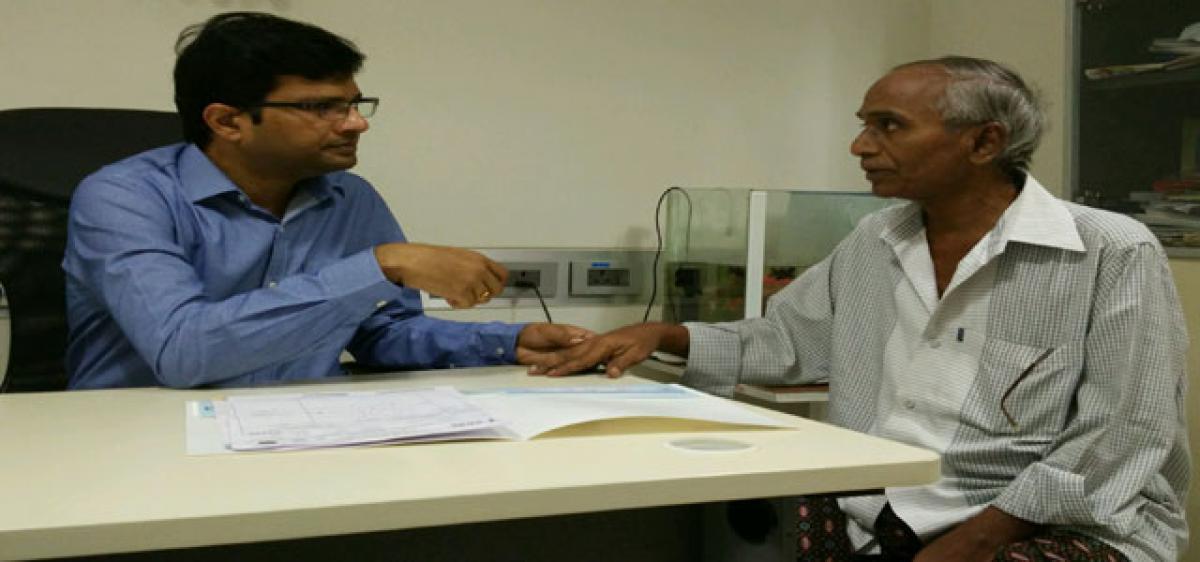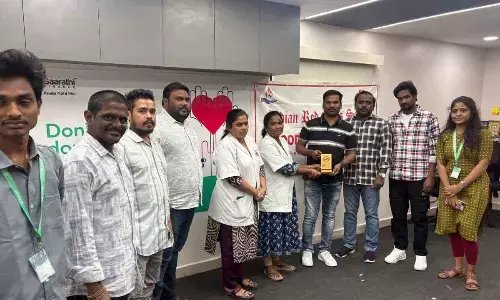Breakthrough robotic surgery for pancreatic cancer

City-based KIMS Hospitals has conducted one of most challenging and complex robotic procedures for pancreatic cancer. Termed as an encouraging development in the medical field, ‘robotic whipples’ procedure is being implemented for treating several cancers.
City-based KIMS Hospitals has conducted one of most challenging and complex robotic procedures for pancreatic cancer. Termed as an encouraging development in the medical field, ‘robotic whipples’ procedure is being implemented for treating several cancers.
The onco-surgeons’ team at KIMS Hospitals in Secunderabad, led by Dr Madhu D, Consultant Surgical Oncologist, Minimal Invasive Surgeon and Robotic Surgeon, conducted the robotic surgeries for three patients suffering from pancreatic cancer in various stages and medical conditions.
Announcing the feat, Dr Madhu said, “Also referred to as pancreaticoduodenum, whipple surgery removes the head of the pancreas, where most tumours occur. Robotic is more advanced than laparoscopic where the surgeon will make small incisions in abdomen and insert instruments including a camera.
Da Vinci robotic device is used and it moves more precisely and easily than the human hand. In an open surgery, a large abdominal incision has to be made to access all the organs.”
“The robotic method has advantages over the conventional open surgeries,” said the doctor. “The advanced procedures have ensured that the patient can be shifted to the room and not ICU, something where the cost factor comes down for the patient’s family,” he said.
The first patient, Panduranga aged around 60 years had a tumour measuring 12cm x 9cm and locally advanced. The other two patients were a 55-year-old woman and a 60-year-old male.
Dr Madhu spoke on the advantages of robotic whipples surgery explaining that the procedure, besides being precision-guided and advanced, said, “It is highly encouraging for surgeons treating a patient in the advanced stage of cancer and removing such a heavy tumour.”
“There may be challenges that are yet to be overcome at other hospitals such as challenges in tumour removal and failures in reconstruction, which is joining parts properly after the tumour has been removed. There is also ample challenge in initial stages too,” he added. The surgery takes on an average six to seven hours.

















